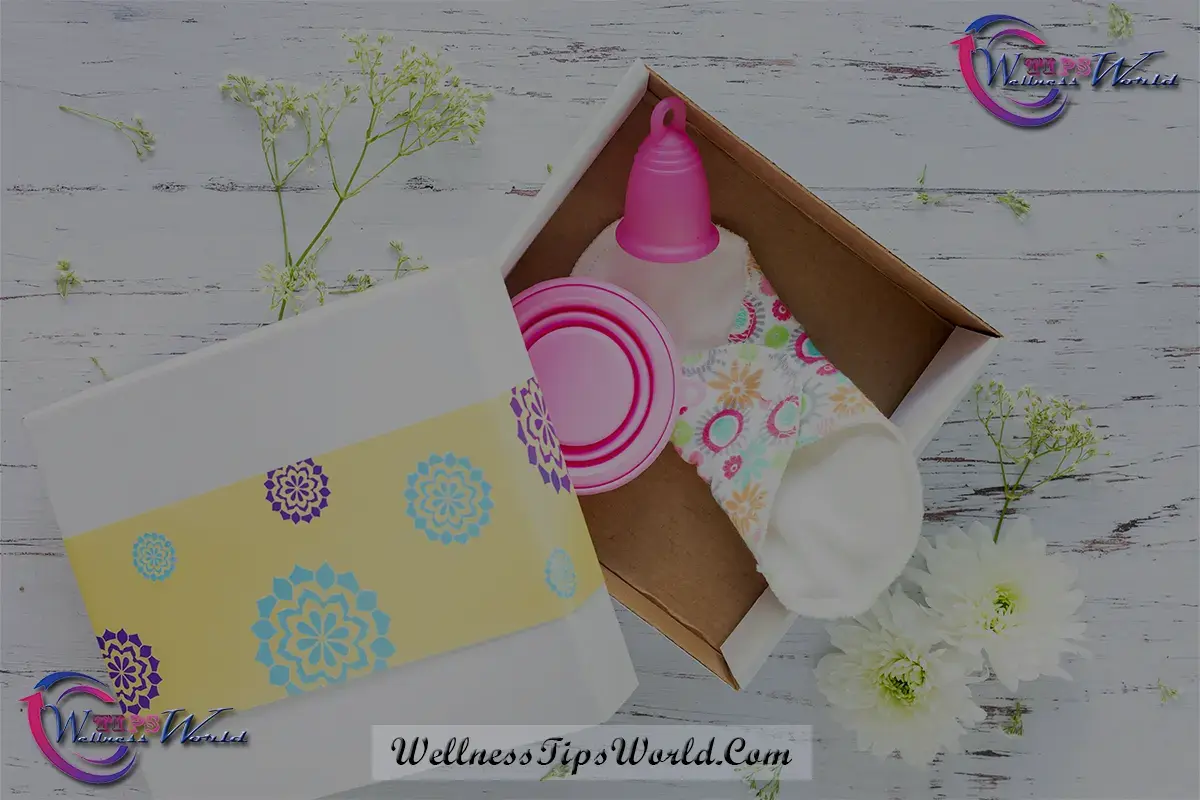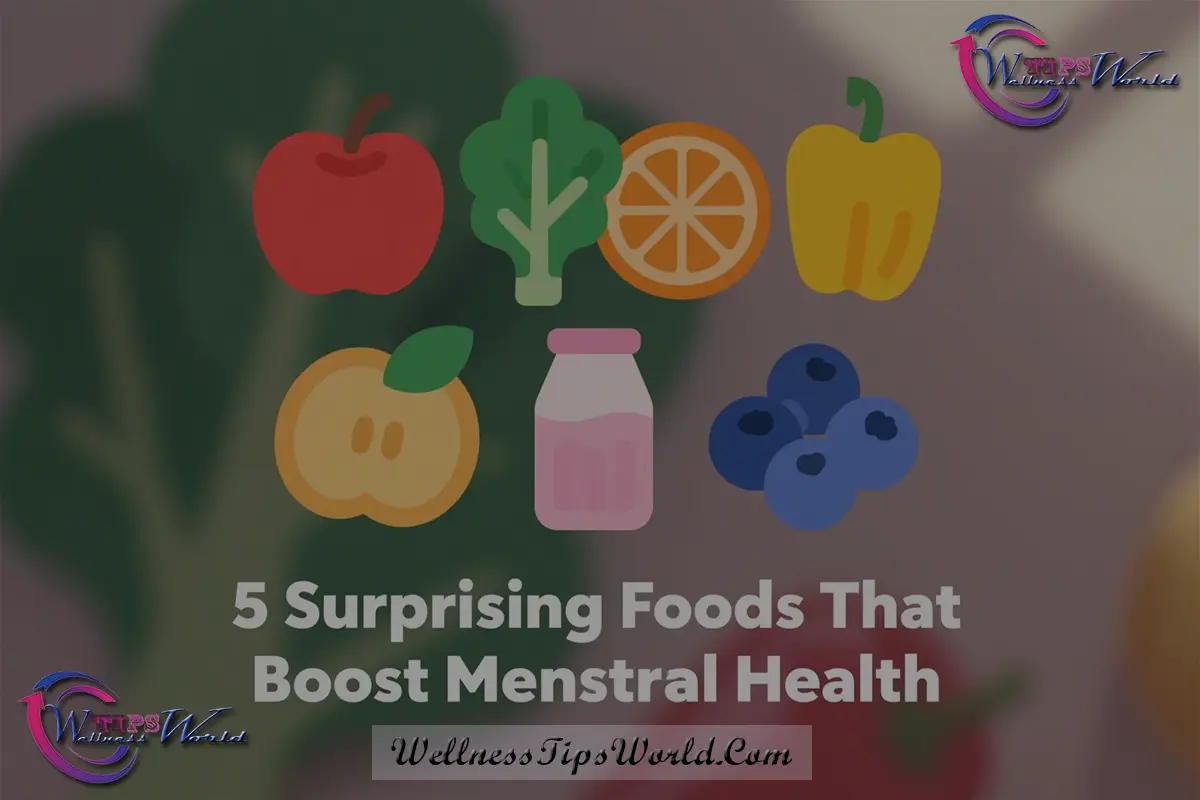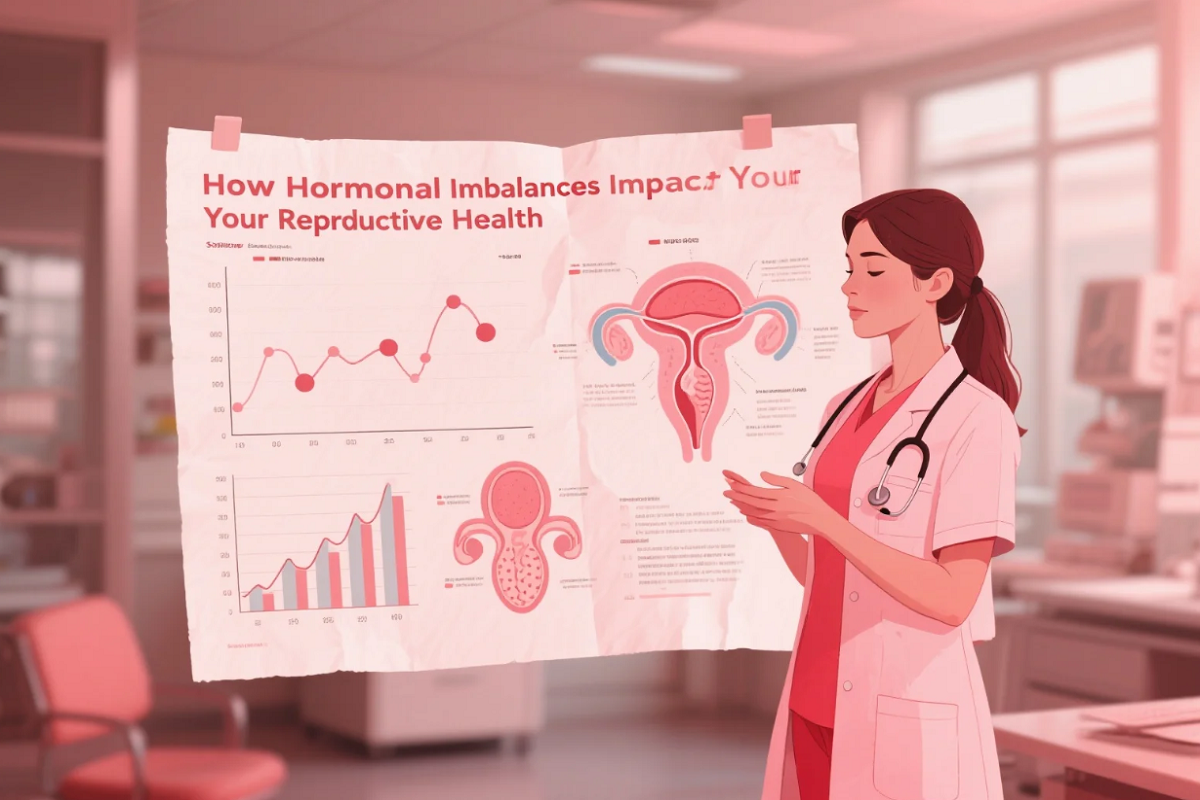7 Common Menstrual Health Issues and How to Address Them
-
112
- 28 Mar, 2025

Menstrual health plays a vital role in a woman's overall well-being. From painful periods to irregular cycles, menstrual issues can disrupt daily life and affect emotional and physical health. If you’re experiencing menstrual problems, you’re not alone. Many women face common menstrual health issues, but the good news is that there are effective ways to address them.
In this article, we will cover 7 common menstrual health issues and provide practical solutions for managing and improving your menstrual cycle. Whether you struggle with heavy periods, PMS, or other concerns, you’ll find helpful tips and natural remedies to support your menstrual health.
1. Irregular Periods
What Causes Irregular Periods?
An irregular period is one that occurs with an unpredictable frequency, duration, or flow. This could mean cycles that are too short or long, missed periods, or varying flow levels. Causes of irregular periods include hormonal imbalances, polycystic ovary syndrome (PCOS), thyroid issues, stress, and extreme weight changes.
How to Address Irregular Periods
To address irregular periods, try these approaches:
Monitor your cycle: Use a period tracker app to monitor your menstrual cycle over a few months. This can help identify patterns and triggers.
Maintain a healthy weight: Sudden weight loss or gain can disrupt hormone balance. Maintaining a balanced weight through proper diet and exercise can help regulate your periods.
Manage stress: High levels of stress can interfere with your menstrual cycle. Regular stress-management techniques such as yoga, meditation, and deep breathing can help balance hormones.
Consult a healthcare provider: If your periods are consistently irregular, it’s essential to see a doctor for a proper diagnosis and treatment plan, especially if underlying conditions like PCOS or thyroid disorders are involved.
2. Heavy Periods (Menorrhagia)
What Causes Heavy Periods?
Heavy periods, or menorrhagia, involve unusually long or intense bleeding that may last longer than a week. Causes can include fibroids, hormonal imbalances, thyroid issues, or other reproductive system conditions.
How to Address Heavy Periods
To manage heavy periods, consider the following:
Iron-rich foods: Excessive bleeding can lead to anemia, so focus on foods rich in iron such as spinach, red meat, beans, and fortified cereals to maintain healthy iron levels.
Herbal remedies: Certain herbs, such as nettle and raspberry leaf, are thought to help reduce excessive bleeding and ease menstrual cramps.
Medical intervention: Birth control pills or IUDs can help regulate menstrual flow and reduce the intensity of heavy periods. Speak with your doctor to determine the best treatment option.
Surgical options: In more severe cases, surgical procedures like a hysterectomy or endometrial ablation may be recommended by your doctor to control heavy bleeding.
3. Premenstrual Syndrome (PMS)
What is PMS?
PMS is a group of symptoms that occur before menstruation, typically in the week or two leading up to your period. These symptoms include mood swings, bloating, fatigue, irritability, and food cravings.
How to Address PMS
There are various strategies to address PMS symptoms:
Dietary adjustments: Eating a balanced diet can reduce PMS symptoms. Focus on foods that are high in fiber, magnesium, and vitamin B6. Avoid excessive sugar, caffeine, and alcohol, as they can worsen symptoms.
Exercise regularly: Moderate exercise can help alleviate PMS symptoms by improving circulation and reducing bloating.
Supplements: Some women find relief with magnesium, vitamin B6, and evening primrose oil supplements. These can help reduce mood swings, bloating, and cramping.
Stress management: Mindfulness, yoga, or relaxation exercises can reduce the stress and anxiety that often accompany PMS.
4. Painful Periods (Dysmenorrhea)
What Causes Painful Periods?
Dysmenorrhea refers to painful cramps that occur before or during menstruation. The pain can range from mild to severe and may include lower abdominal pain, back pain, and nausea. It’s often caused by the release of prostaglandins, hormone-like substances that cause the uterine muscles to contract. In some cases, painful periods may also be a symptom of underlying conditions such as endometriosis or fibroids.
How to Address Painful Periods
To relieve menstrual cramps:
Heat therapy: Applying a heating pad to the lower abdomen can help relax muscles and reduce pain. A warm bath may also help relieve tension.
Over-the-counter pain relievers: NSAIDs such as ibuprofen can ease pain and lessen inflammation. Consult a doctor for personalized advice on medication.
Exercise: Light exercise, such as walking or yoga, can improve blood flow and reduce menstrual pain.
Herbal remedies: Ginger, chamomile, and turmeric are known for their anti-inflammatory properties and may help reduce period pain.
5. Polycystic Ovary Syndrome (PCOS)
What is PCOS?
PCOS is a hormonal condition that impacts around 1 in 10 women of reproductive age. It is characterized by irregular periods, elevated levels of androgens (male hormones), and the formation of cysts on the ovaries. PCOS can lead to infertility, weight gain, and excessive hair growth.
How to Address PCOS
Managing PCOS requires a multi-faceted approach:
Maintain a healthy diet: Focus on a balanced diet rich in whole grains, lean proteins, and healthy fats. Avoid processed foods, which can exacerbate insulin resistance often associated with PCOS.
Exercise regularly: Physical activity helps regulate blood sugar levels and can support weight management. Incorporating both cardio and strength training is beneficial.
Supplements: Inositol, vitamin D, and omega-3 fatty acids have shown potential in improving insulin sensitivity and regulating periods in women with PCOS.
Medical treatment: Birth control pills, metformin, or fertility treatments may be necessary in more severe cases. Talk to your healthcare provider to develop a treatment plan that's tailored to you.
6. Endometriosis
What is Endometriosis?
Endometriosis is a condition in which tissue similar to the lining of the uterus grows outside the uterus, causing severe pelvic pain, heavy periods, and sometimes infertility. It can affect various organs, including the ovaries and fallopian tubes.
How to Address Endometriosis
Addressing endometriosis requires both lifestyle and medical interventions:
Pain management: Pain relievers like NSAIDs can reduce inflammation and relieve pain. A heating pad or warm baths may also help alleviate discomfort.
Hormonal therapies: Birth control pills, IUDs, or hormone therapy may help regulate the menstrual cycle and reduce the growth of endometrial tissue.
Surgical options: In severe cases, surgery may be necessary to remove endometrial growths and alleviate pain.
Alternative treatments: Some women find relief with acupuncture or herbal treatments like turmeric and ginger to reduce inflammation.
7. Amenorrhea (Absent Periods)
What Causes Amenorrhea?
Amenorrhea is the absence of periods. It can be primary (if a woman has never had a period by age 16) or secondary (if periods stop after they have begun). Causes can include pregnancy, excessive exercise, low body weight, stress, hormonal imbalances, or certain medications.
How to Address Amenorrhea
To address amenorrhea, it’s important to:
Consult a healthcare provider: Identify the underlying cause of absent periods. A healthcare provider may recommend blood tests, ultrasounds, or other diagnostic tests to determine the cause.
Maintain a healthy weight: Underweight or excessive exercise can lead to the cessation of periods. Aim for a balanced weight through proper nutrition and exercise.
Manage stress: Reducing stress through relaxation techniques can help restore normal menstrual cycles.
Hormonal treatments: Birth control pills or hormone therapy may be prescribed to help regulate periods, especially if hormonal imbalances are the cause.
Menstrual health issues can range from mild discomfort to serious conditions that require medical intervention. By understanding the common causes of menstrual problems and implementing effective solutions, women can take control of their reproductive health and improve their overall well-being. If you're experiencing persistent or severe symptoms, always seek guidance from a healthcare provider to ensure proper treatment.










